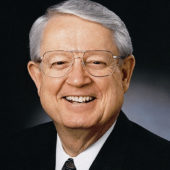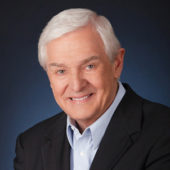Marriage and family expert Dr. Gary Chapman’s book The 5 Love Languages has generated a lot of interest in the Christian community.
Gary explains that he identified these love languages after years of counseling where he heard similar stories over and over again. One spouse would say they didn’t feel loved and the other spouse would be frustrated because they were trying to love the first individual.
“I asked myself, when someone sat in my office and said, ‘My spouse doesn’t love me,’ what did they want? What were they complaining about? And their answers fell into five categories.”
He identified five love languages in his book:
Quality time is giving your spouse your undivided attention. The TV is off and you’re looking at each other and talking to each other.
Words of affirmation is using words to affirm the other person: “You look nice in that outfit,” “I really appreciate what you did.”
Gifts is to give give gifts as an expression of love. It’s not the cost of the gift, it’s the thought.
Acts of service is simply doing something for your spouse, cooking a meal, vacuuming the floor or walking the dog. It’s anything you know your spouse would like you to do for them.
Physical touch is any sort of contact from small to large.
According to Gary, out of the 5, each of us has a primary love language.
“If you don’t speak your spouse’s love language they may not feel loved even if you’re speaking some of the other languages.”
The book is intended to help people learn which love language they have and which love language their spouse has but it can’t fix everything. Couples still have to be intentional about leaning to speak the other person’s love language.
This program originally aired on January 25.
Key Scriptures: Philippians 2:5-8; 1 Corinthians 13; 1 Peter 4:8




















